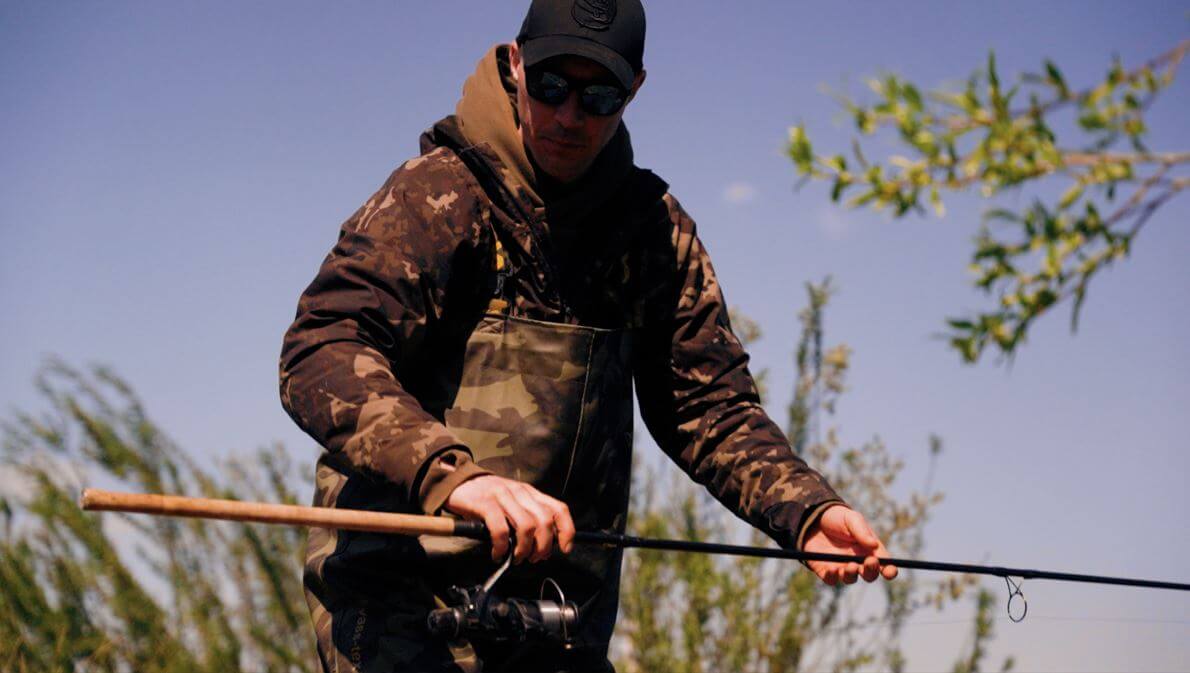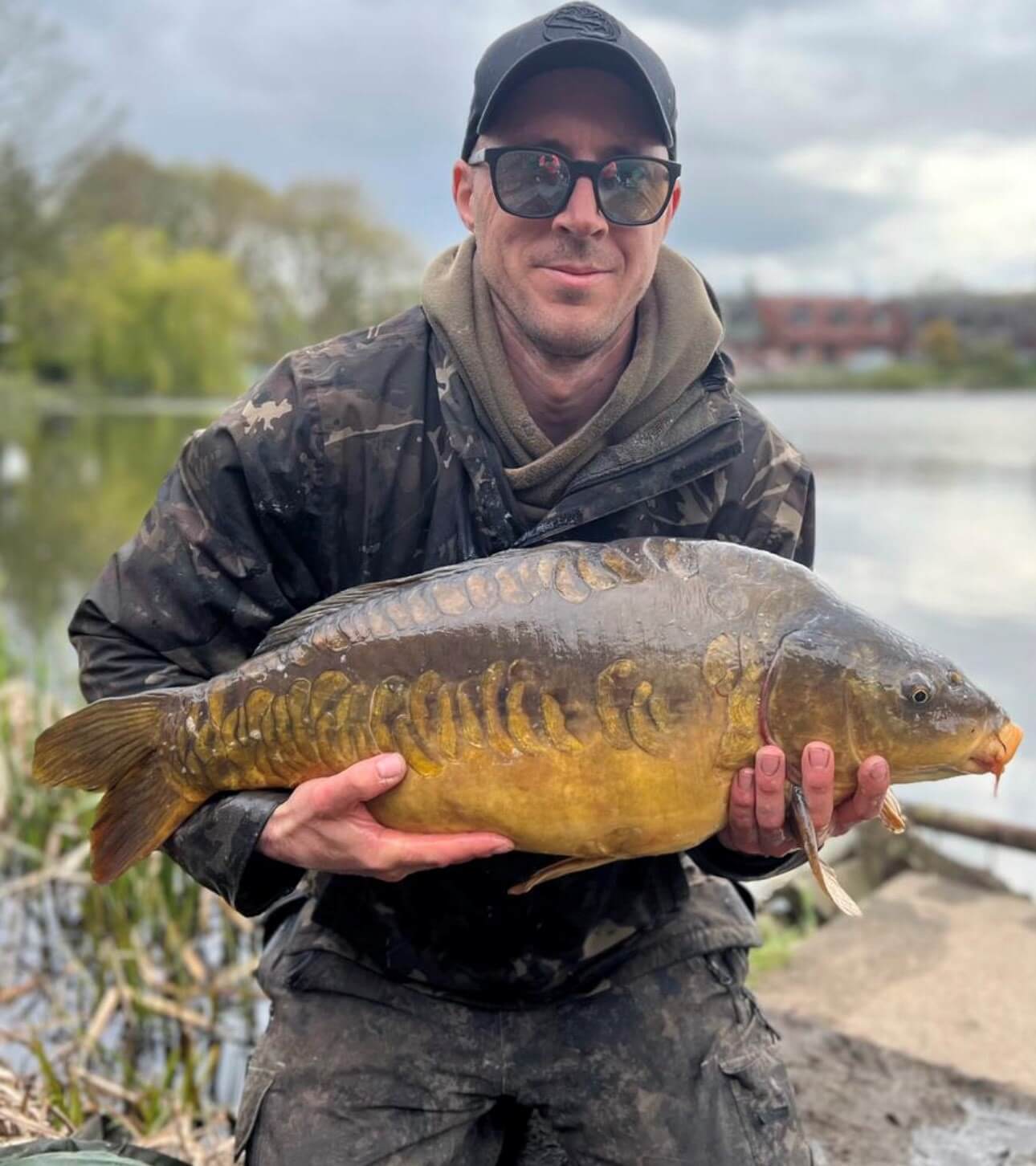LEEDS, United Kingdom — Strategies to improve mental health can come in all forms and activities. Recently, one study concluded that playing ping pong can help people summon a stronger mind. Of course, every strategy depends on the person. For one British man who suffered “horrific” PTSD after being the victim of a violent crime, he says fishing “saved my life.”
Andy Beeman has been dealing with complex PTSD since the age of 17, after he was stabbed with a 10-inch combat knife in an unprovoked attack outside his school. However, his new hobby is acting as a surprising form of therapy.
Since the attack in 1998, Beeman had a chronic fear of crowds and being approached by people from behind — leading to crippling anxiety. Seven years ago, after a bout of kidney disease left him in hospital for a year, his PTSD returned “with vengeance” and was worse than ever. Thankfully, things took a positive turn when Andy’s friend took him fishing, a hobby which has now saved his life.
“I had always struggled at school. I was born with a birth defect and was bullied, but the PTSD really began when I was almost stabbed to death at 17,” the 41-year-old says in an online video during Mental Health Awareness Week in the U.K.
“From then onwards it affected me for a long time. It caused me a lot of issues. If I walked into a busy room like a bar or concert the hypervigilance would make me look around and list the threats in my head.”
“I might be okay one day then the next day I’d have severe nightmares and would break down crying,” Beeman explains. “This lasted throughout my 20s and then in my 30s I found out I had another genetic kidney disease. I ended up in A&E, and because of complications I had to stay in hospital for the best part of a year. Because of this my PTSD came back with vengeance. I became addicted to painkillers and the trauma came back.”

“Towards the end of that, one of my friends took me fishing. I rediscovered my love for nature and wildlife then. I had counselling in the past to help with the violent attack but it never really worked for me. It just stirred up my emotions. But fishing worked for me,” Beeman continues.
“Fishing definitely saved my life. If not directly then certainly indirectly. I’ve had points where I haven’t wanted to continue with my life. But taking myself fishing is a therapy as well as a sport.”
Andy now fishes multiple times a week, and particularly enjoys trout fishing in rivers. Although he still struggles with his PTSD, fishing has served as his main coping mechanism and has helped him “work through it.”
“Whilst I’m a bit more in control of my PTSD, sometimes I do still get to the point where I know I’m not feeling so good,” Andy adds. “When that happens I just take myself fishing. I can feel really anxious but then as soon as I start it’s quiet. I can concentrate on fishing instead of other issues. Being outside all day I then sleep really well at night as well.”

Andy has found more mental health support through fishing
“The fishing community is great. I found a lot of friends as an adult through fishing,” he says in his video. “As someone in their forties it’s difficult to make friends. Most people go to the pub and get drunk but we have a network and we all check up on each other.”
Andy is now a volunteer and level two coach at Tackling Minds – a non-profit organization that promotes fishing as a way to improve mental well-being. He coaches people who are struggling with their mental or physical health to participate in fishing sessions and event.
“I really enjoy coaching as well as fishing. I realized that fishing was helping my recovery so much so I wanted to pass that on. I can see the difference in people arriving and leaving in the first session,” Beeman explains.
“People all have different conditions but the result is the same – after they’ve been fishing for a few hours they feel so much better.”
Andy is encouraging people to get their fishing license as a way to improve their mental health.
“You never really get over PTSD – it’s always there in the background – but I’ve managed to work through it with fishing.”
South West News Service writer Athena Stavrou contributed to this report.
You might also be interested in:
Who faces a high risk of developing PTSD?
PTSD can affect anyone who has experienced a traumatic event. However, certain groups are more likely to develop PTSD due to their higher likelihood of experiencing traumatic situations or because of differences in how they process trauma. These groups include:
- Veterans and active-duty military: They often encounter traumatic experiences during their service, such as combat exposure, which significantly increases the risk of developing PTSD.
- First responders: Emergency personnel like police officers, firefighters, and paramedics are frequently exposed to traumatic events in their line of work.
- Victims of violent crime: Individuals who have been assaulted, robbed at gunpoint, or otherwise victimized in a violent manner have a higher risk of developing PTSD.
- Survivors of disasters and accidents: Natural disasters, serious accidents, terrorist attacks, and other life-threatening situations can lead to PTSD.
- Survivors of abuse or domestic violence: Physical, sexual, or emotional abuse, particularly if it occurred over a prolonged period, significantly increases the risk of PTSD.
- Individuals with a family history of PTSD or depression: Genetics might play a role in determining who gets PTSD. Individuals with a family history of mental health conditions, such as PTSD or depression, might be more susceptible.
- People who lack a strong support system: Social isolation or lack of a supportive network can make it harder for individuals to cope with traumatic experiences, increasing the risk of PTSD.
- Children who experience traumatic events: Children, including those who witness violence or have been physically, sexually, or emotionally abused, have an increased risk of developing PTSD.
It’s important to remember that while these groups have a higher risk, PTSD can affect anyone, regardless of age, gender, or background. Furthermore, not everyone who experiences trauma will develop PTSD.

